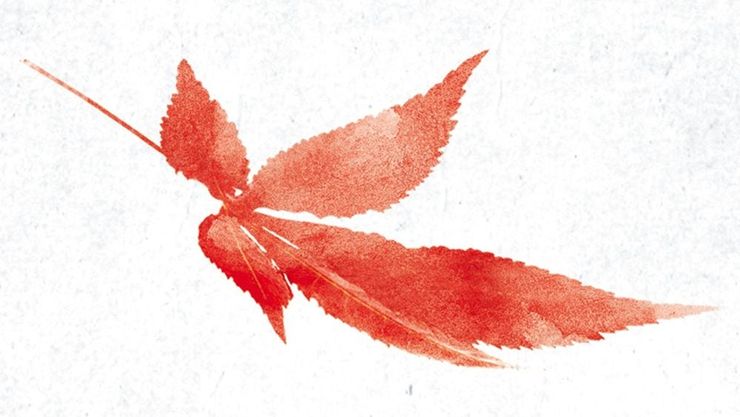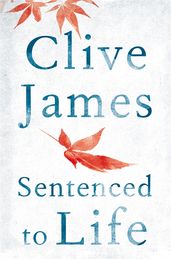‘Japanese Maple’ by Clive James
This beautifully moving poem is from Clive James's collection Sentenced to Life, in which Clive looks back over his extraordinary life with unflinching honesty.

In his insightful collection of poems, Sentenced to Life, Clive James looks back over an extraordinarily rich life with a clear-eyed and unflinching honesty. There are regrets, but no trace of self-pity in these verses, which – for all their open dealings with death and illness – are primarily a celebration of what is treasurable and memorable in our time here.
Below, read one of the poems from this beautiful collection, ‘Japanese Maple’, in full.
If you love Clive's work, discover what are, in his expert opinion, the best poetry books ever written.
Japanese Maple
Clive James
Your death, near now, is of an easy sort.
So slow a fading out brings no real pain.
Breath growing short
Is just uncomfortable. You feel the drain
Of energy, but thought and sight remain:
Enhanced, in fact. When did you ever see
So much sweet beauty as when fine rain falls
On that small tree
And saturates your brick back garden walls,
So many Amber Rooms and mirror halls?
Ever more lavish as the dusk descends
This glistening illuminates the air.
It never ends.
Whenever the rain comes it will be there,
Beyond my time, but now I take my share.
My daughter’s choice, the maple tree is new.
Come autumn and its leaves will turn to flame.
What I must do
Is live to see that. That will end the game
For me, though life continues all the same:
Filling the double doors to bathe my eyes,
A final flood of colours will live on
As my mind dies,
Burned by my vision of a world that shone
So brightly at the last, and then was gone.
‘Japanese Maple’ appears in Clive’s collection, Sentenced to Life.
Sentenced to Life
by Clive James
Again and again, James reminds us that he is not only a poet of effortless wit and lyric accomplishment: he is also an immensely wise one, who delights in using poetic form to bring a razor-sharp focus to his thought. Miraculously, these poems see James writing with his insight and energy not only undiminished but positively charged by his situation: Sentenced to Life represents a career high point from one of the greatest literary intelligences of the age.
